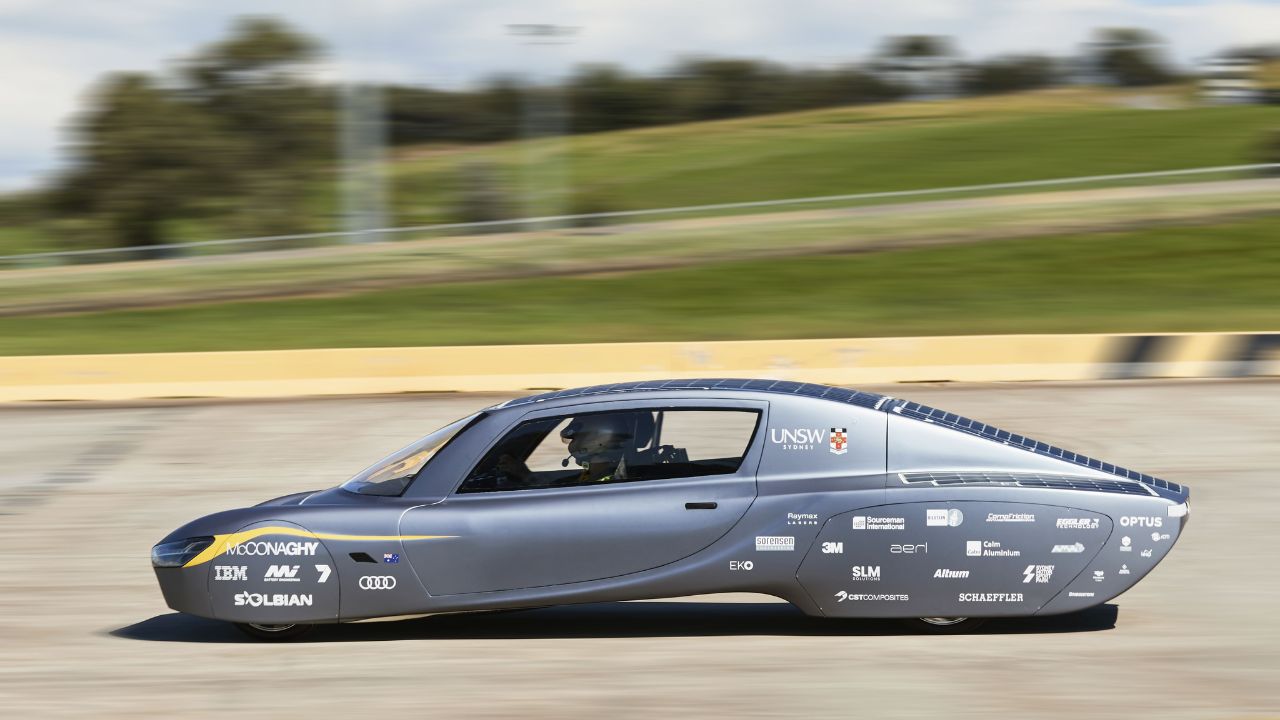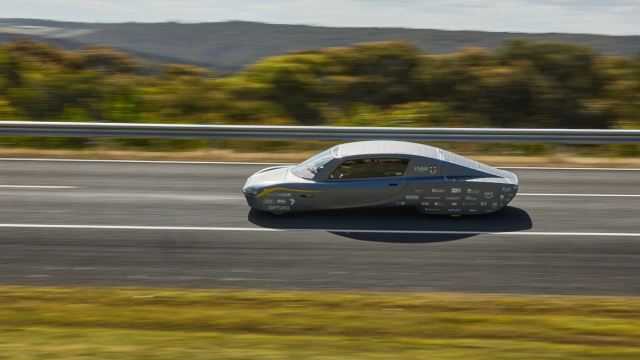The Sunswift 7, an Australian-designed solar-powered car from UNSW, has broken a Guinness world record by travelling 1000km on a single 12-hour charge.
I freakin’ love the Sunswift 7. When I met the team leader in September and got to check out the car, the team was working hard around us in the workshop on optimising the vehicle for the challenge. The team leader was hopeful that cars like the Sunswift 7 could inspire carmakers to incorporate solar panels in their vehicles.
And now, the team has achieved their goal for 2022: breaking the Guinness World Record for the fastest electric car over 1,000km. For context, 1000km is far beyond the range of consumer-ready electric vehicles in Australia, with the Tesla Model S Plaid+ capable of about 837km on a single charge.
“This is amazing, incredible. Wow. The whole year has been leading to this point and it hasn’t been plain sailing. To be honest, we had our doubts whether we were going to be able to achieve it,” said Richard Hopkins. He’s the Sunswift team principal and used to be the head of operations for the Red Bull F1 racing team.
“So to come here and do what we set out to do is just the most incredible feeling. I’m sure those sentiments are shared amongst the whole team.”
Previous generations of the UNSW Sunswift solar-powered car have also been record-breakers. In 2014, the Sunswift 5 (eVe) broke the FIA world record for the fastest electric vehicle capable of travelling 500km on a single battery, averaging a speed of 107km/h. A big part of this is its solar technology, however, the exterior of the car was built with efficiency in mind.
The sixth car, the Solarswift VIolet, broke another record in 2016, setting a Guinness World Record for the lowest energy consumption while driving across Australia in an electric car.
And now, after 240 laps at the Australian Automotive Research Centre’s Highway Circuit, the Sunswift 7 is also a record breaker. Energy consumption of the car was as low as 3.8 kWh/100km. According to Hopkins, more efficient commercially available EVs achieve an efficiency of about 15kWh/100km and the average for consumer EVs is around 20kWh/100km.
“Sunswift 7 isn’t a production car of the future, since we’ve compromised on comfort and the cost is prohibitive. But we have shown that if you want to make cars more efficient, more sustainable, more environmentally friendly, then it is possible,” Hopkins added.
“Let’s remember, these [Sunswift 7 creators] are not the best paid professional car makers in Stuttgart working for Mercedes. This is a bunch of very smart amateurs who have taken all the ingredients and put it together in a brilliant way… … Imagine what they will do when we let them loose on the wider world.”
The Sunswift 7 looks like nothing you’ve probably seen before, engineered to break records instead of meeting the consumer market requirements of Teslas or Polestars.
It was meant to begin racing in 2021 in events such as the World Solar Challenge, but COVID kind of messed up the schedule.
The car weighs 500kg, well below what you’d typically expect from a car you might see on the road. It took 57 attempts to get the design right. It has no ABS, no air conditioning, no windscreen wipers and no airbags.
And, of course, the record attempt was not without test day issues. A battery management issue came up, and with only 15 minutes to resolve it without the record being nullified, the team solved it in 14 minutes and 52 seconds. Wow.
“It’s been so rewarding to see the whole team come together and make so much progress and get us to this amazing point. It was a lot of work and a lot of hours and a lot of stress, but it’s all been worth it,” Hopkins said.

Congratulations to the entire Sunswift 7 team. It’s an incredible record to break.
This article has been updated since it was originally published.
